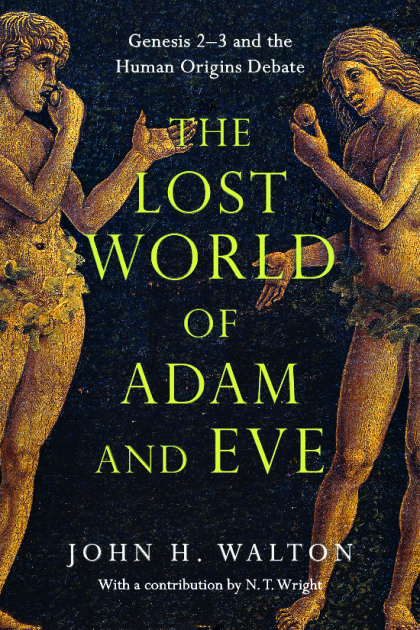
A number of my colleagues recommended I read What is the “Good News” of Jesus Christ?*, delivered by David Suryk at the 2016 Midwest Faculty Conference (Cedar Campus, 6/19/2016). When I had opportunity to connect with David at this summer’s Midwest Faculty Conference, I asked him not only for a copy of What is the “Good News” of Jesus Christ?, but also the permission to share the sermon with the Emerging Scholars Network via a series on the blog. So, here is Part 1. “Thank-you!” to David for the series and Hannah for editing. To God be the glory! ~ Tom Grosh IV, Associate Director, Emerging Scholars Network
INTRODUCTION – WE MUST DO BETTER
Our Conference theme for today is “What is the Good News of Jesus Christ?” It’s crucial that Christians today and not least those at the University and in the Academy get a very clear answer to this question. Sadly there is still a lot of confusion over what the Gospel is. For some, the Gospel is a plan of personal salvation, a message about a person being in sin and needing rescue from God’s judgment. Jesus is then presented as the one who will save the person from his or her sins. For many in American Christianity, that message is “the gospel” that the Bible talks about. That gospel is about you and your sins and your need to get right with God. Dallas Willard calls that sort of message a “gospel of sin management.” (The Divine Conspiracy, Harper, 1998, p. 41ff).

And so, for many Christian faculty members, evangelism is seen as trying to talk to non-believing faculty members about their sin and need for a savior. As one woman in our graduate fellowship once put it, that Jesus is “the utilitarian Jesus.” As we will see later this week, Jesus cared very deeply that his disciples understand very clearly who he is, not only for their own sake, but also for how they tell others who he is and what it means to follow him. What view of Jesus do our non-believing faculty colleagues and neighbors have? Where did they get that view?
I put this all rather starkly because that seems to be an all-too-common view of Jesus, the Gospel and evangelism today—and views held by Christians and non-Christians alike. What’s more, many Christians don’t like doing evangelism because that is the only understanding of it that they know. Fortunately, that is not what the Bible, and in particular, not what the Apostle Paul meant by “the Gospel.”
This morning we want to find out what the Apostle Paul really meant by “the Gospel,” and indeed, how he presented Jesus who is the content of the Gospel. And I’ll say something too about how we might better think about evangelism.
Our Titus reading this morning is the first four verses of the manuscript. There we read –
1 From Paul, a slave of God and apostle of Jesus Christ, to further the faith of God’s chosen ones and the knowledge of the truth that is in keeping with godliness, 2 in hope of eternal life, which God, who does not lie, promised before the ages began. 3 But now in his own time he has made his message evident through the preaching I was entrusted with according to the command of God our Savior. 4 To Titus, my genuine son in a common faith. Grace and peace from God the Father and Christ Jesus our Savior! (NET Bible).
Paul’s purpose for the believers on the island of Crete was that the Jewish and Gentile believers (God’s chosen ones) would have their lives conformed to the Lord Jesus Christ (v 1). This week we will get to explore what that might look like for Christians at the University and in the Academy in our study of the letter to Titus.

[ Verse 2 speaks of the “hope of eternal life” that God “promised from before the ages began.” In his book, The Lost World of Adam and Eve (InterVarsity Press, 2016), Dr. John Walton proposes that the Genesis 3 failure of Adam was failing to eat from the Tree of Life thus failing to gain immortality for human kind, God’s image bearers. Adam was free to eat from any tree in the Garden, but he chose instead to eat from the one and only tree God told him not to eat from—the Tree of the Knowledge of Good and Evil, thus seeking to establish wisdom on his own terms. Indeed, Paul’s argument at Romans 2:7 is that those who seek glory and honor and immortality are rewarded with eternal life. And in the book of Revelation (2:7 and 22:14, 19) the saints who persevere through suffering to the end, those who “overcome” are given the right to eat from the Tree of Life. I think Paul alluded to that narrative theme in verse 2. And those believers on Crete and we here today, “God’s chosen ones,” have this hope of eternal life. And Paul would urge that our faith and life must reflect this hope we have in Christ. ]
WHAT IS “THE GOSPEL”?
Verse 3 speaks to our conference theme today. What is the message that Paul was entrusted with? This language of something being entrusted to Paul appears elsewhere in his letters. Paul said he was entrusted with a commission (1 Corinthians 9:17) and several times that the message he had been entrusted with was the Gospel (1 Thessalonians 2:4, 1 Timothy 1:11, Romans 1:1-2, Galatians 2:7, etc.). The commission he was entrusted with was to preach the message he was entrusted with.
Galatians chapters 1 and 2 are very important for us this morning. There Paul went on an evidently much-needed rant about the Gospel. In Galatians 2:7 Paul said that there was agreement that he had been entrusted with the Gospel for the uncircumcised (the Gentiles) even as Peter had been entrusted with the Gospel for the circumcised (the Jews). It was in Galatians 1, however, that Paul strongly insisted that there is only one Gospel, and any gospel contrary to what Paul preached was a false gospel. He repeated that twice for emphasis.
[ Back to the typical “plan of personal salvation” gospel or “gospel of sin management.” We need to be very clear here—those usually are not false gospels because they usually are not contrary to the Gospel Paul said he had received from Jesus. Rather the problem is that they simply are not what Paul meant by “the Gospel” that he said he received through a revelation of Jesus Christ (Galatians 1:11-12). ]

Tom Wright in his wonderful and very helpful book, What Saint Paul Really Said (Eerdmans, 1997, p. 40), said that we make two mistakes when we think that some plan of personal salvation is what Paul meant by “the Gospel.” The first mistake falsely assumes that whatever is our message, our plan of salvation is what Paul really meant by “the Gospel” and so we read into the Scripture our contemporary understandings of “the gospel.”
But the second mistake is worse, for it fails to understand what Paul actually meant by “the Gospel.” This mistake is worse, because Paul said (1) that his Gospel is the message that had been entrusted to him by God and, further, (2) that his Gospel “is the power of God for salvation to everyone who has faith, to the Jew first and also to the Greek.” (Romans 1:16). Thus we simply must get very clear what Paul said is the one and only Gospel, the message entrusted to him that is the power for salvation.
Instead of a gospel of sin management, Paul said it was God’s Gospel concerning his Son, the Lord Jesus Christ. Once we start there, we are on solid ground to unpack what Paul meant by “the Gospel.”
As we said, Paul received both his commission to preach the Gospel and the Gospel message itself through a revelation of Jesus. But that language about gospel (εá½Î±Î³Î³Îλιον in Greek) was not at all new. It has deep roots in two very well-established narratives, one of them Jewish and the other Greco-Roman. . . .
For Part 2’s continued exploration of the Gospel, click here.
—
Texts for your prayerful consideration as you engage this series: Matthew 10:1-15; Matthew 28:16-20; Romans 15:7-13; and Philippians 2:5-11.
*Material in [ ] were omitted during preaching. Note: The picture is of a sunset at the 2017 Midwest Faculty Ministry Conference / Cedar Campus taken by Tom Grosh IV.
David Suryk has served InterVarsity with Graduate and Faculty Ministries (GFM) since 1991 at the University of Illinois at Urbana where he also did his graduate work in philosophy. He says he’s a recovering analytic philosopher. He seeks to help GFM be faithful to our calling to the University among graduate students and faculty and especially in the area of the Gospel, Jesus and evangelism. He enjoys woodworking and home remodeling as well as using graduate students to help with these projects.

Thank you david suryk. Still not entirely sure what is meant by thetty gospel of jesus christ, though I am a professing Christian.
My colleaujute and friend act work says he might call me a false apostle I’d he perishes.
What should I do, to prevent the false gospel from gaining head way.
It seems I dont need to preach as much as i need to persevere and endure. With obedience, yours truly.
Rixhard
In christ
didn’t answer my question what is the Good News of Jesus Christ
God Bless you